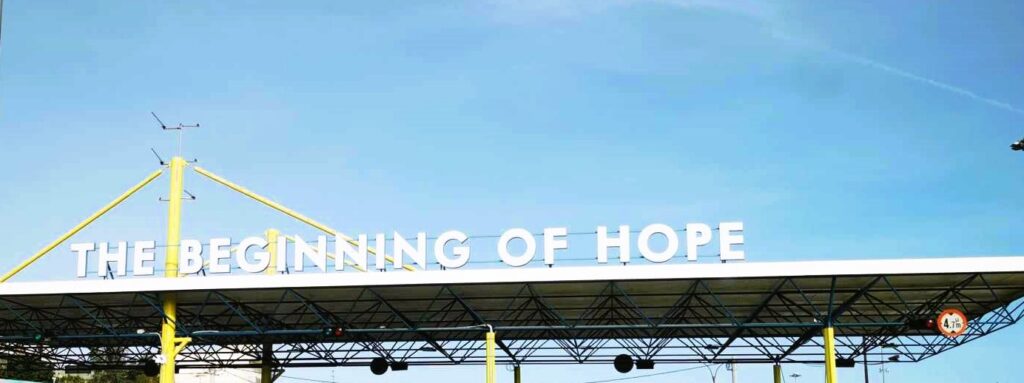Tomaž Flajs:
Introduction to the conference »Not Looking Away and Finding Hope Together«
We are living in turbulent times. Life on our planet and with it the existence of humanity is threatened. We are facing a severe ecological crisis; there is a deep chasm between the rich and the poor and many wars are being fought. As a result a huge number of people have to leave their homes and become refugees, to whom all too often the basic human rights are denied. At the same time, the autoritarian tendencies and nationalisms with the accompanying populism in many countries are on the rise, together with the rise of the religious fanaticism…
It looks like we, as humanity, are unable to protect existence on the planet. All efforts seem futile, as the situation apparently grows worse. The recourse to technological improvements bears no fruit in spite of the contrary expectations. Even more, they often create new problems. The official political structures are inefficient as the politics seem to have been reduced to fighting for and maintaing positions of political parties instead of striving for, coordinating and maintaining the interests and diversity of a society. Economic interests prevail over the basic respect for life and the needs of its diverse forms. Religions mostly seem to serve divisions, contrary to their primary function of offering ways of searching for a deeper connection to all creation (re-ligare).
A fundamental reorientation is needed. An approach to life which would put the diversity of life forms and the genuine care for them at its center. An approach that would recognise the preciousness and value of nature and human life in itself.
What we are witnessing today is unfortunately too often the contrary. Nature and people count only to the extent to which they serve some ‘higher’ interest, or they are redundant, often even to be eliminated. This, together with establishing some abstraction thought to be above concrete life as the goal of all efforts, is a basic common characteristic of different forms of totalitarianism which form the core of the problems with which we are grappling. Totalitarianism in its basic meaning of replacing a part for the whole and the domination of this part over the whole. What characterizes it is asserting mechanical, fixed views and ways of dealing which deny the uniqueness and unrepeatability of each living being.
Today maybe the most visible is the economic totalitarianism, where everything is subordinated to profit as the main guiding principle and justification of actions, even if they are destructive to the ecological balance, social justice and life of society as a whole. The political totalitarianism in its old form of the struggle for power under the guise of the struggle for reaching idelogical aims seems to be more or less overcome. However, what we are witnessing more and more is a decline of democracies and the threat of new forms of fascism rising its head again. Here ideology is replaced for example by nationalism or religious fundamentalism. Related to this, but also a phenomenon in itself, is religious totalitarianism, which manifests itself as a fanatical pursuit of fundamentalist dogmas and the “higher goals” associated with them, which supposedly justify violence against those who think and live differently.
We don’t pretend to know the answers and solutions to all this. If we did, we would be most probably exert a new form of totalitarianism – the psychotherapeutic one. But we do recognise the importance of not looking away, as we believe in the power of awareness. We believe that if we manage to connect with people from different fields of activity and look together at the various manifestations of the crisis of our common world, we can turn the feeling of helplessness into hope, gain a new understanding and find alternative connected ways of acting, where everyone can contribute their share in to the mosaic of coping with the crisis.
This in itself could already be practicing a different paradigm – which is to find ways to connect and share with each other, rather than dividing, competing and fighting against each other; to recognize the value of the ‘here and now’process instead of driving for imagined future goals; to open to what is, instead of trying to force it; to find ways to respond appropriately through experimentation rather than through some predetermined plan.
We don’t know where this could lead us and we think it is worth trying.

